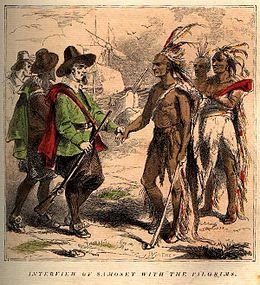
The history of European colonization of the American continent began in the late 15th century, with the famous voyage of Christopher Columbus in 1492. This voyage, financed by Queen Isabella of Spain, marked the beginning of a new era of European expansion and colonization that lasted for centuries and greatly influenced the course of world history.
Historical background
Before the arrival of Europeans, the Americas were inhabited by many thriving civilizations, such as the Aztecs and Mayans in Central America, and the Incas in South America. These civilizations were advanced in agriculture, engineering, and science, and had complex social and political systems.
Columbus' voyage
On August 3, 1492, Columbus sailed from Spain with three ships: the Santa Maria, the Pinta, and the Niña. On October 12, 1492, he reached what is now believed to be the Bahamas, believing that he had reached India, which is why he called the natives "Indians." Columbus' discovery opened the door to a wave of European exploration and colonization.
Spanish colonization
After Columbus, the Spanish began building a vast empire in the New World. In 1519, Hernán Cortés led a campaign that led him to destroy the Aztec Empire and capture Mexico City. He was followed by Francisco Pizarro, who conquered the Inca Empire of Peru in 1533. The Spanish established a strict colonial regime, exploiting natural resources and local labor.
Portuguese colonization
In 1500, Portuguese explorer Pedro Álvarez Cabral discovered Brazil, and the Portuguese began exploiting natural resources, especially timber and gold, and establishing large plantations based on enslaved African labor.
French colonialism
French colonization of North America began in the early 17th century, with the founding of Quebec City by Samuel de Champlain in 1608. France sought to build a commercial empire based on the fur trade and alliances with Indian tribes.
British colonialism
British colonization began in earnest in the early 17th century. In 1607, the Jamestown Colony was founded in Virginia, the first permanent British colony in the New World. Over the next century, the British established 13 colonies along the eastern seaboard of North America. British colonialism focused on agriculture and trade, relying largely on the slave system.
Dutch colonialism
The Dutch also established colonies in the Americas, most notably New Amsterdam (present-day New York) in the early 17th century. The Dutch focused on trade and profit, and were a major player in the fur trade.
Impact on indigenous people
The impact of European colonization was devastating on the indigenous peoples of the Americas. The Europeans brought with them diseases to which the indigenous people had no immunity, such as smallpox, which greatly reduced their numbers. Many indigenous people were also forced into forced labor in mines and farms, and their cultures and traditions were destroyed as a result of proselytization and forced conversion.
Conclusion
The European colonization of the Americas marked a major turning point in global history. It gave rise to a new world order based on European expansion and the exploitation of resources and labor from the New World. Although colonization brought with it some technological and cultural advances, its human cost was very high, especially for indigenous people. It also laid the foundation for the development of new countries that would later become world powers, such as the United States and Brazil.
The history of colonialism remains a controversial topic and calls for much discussion and analysis to understand the complex and profound effects it has had on the world even today.